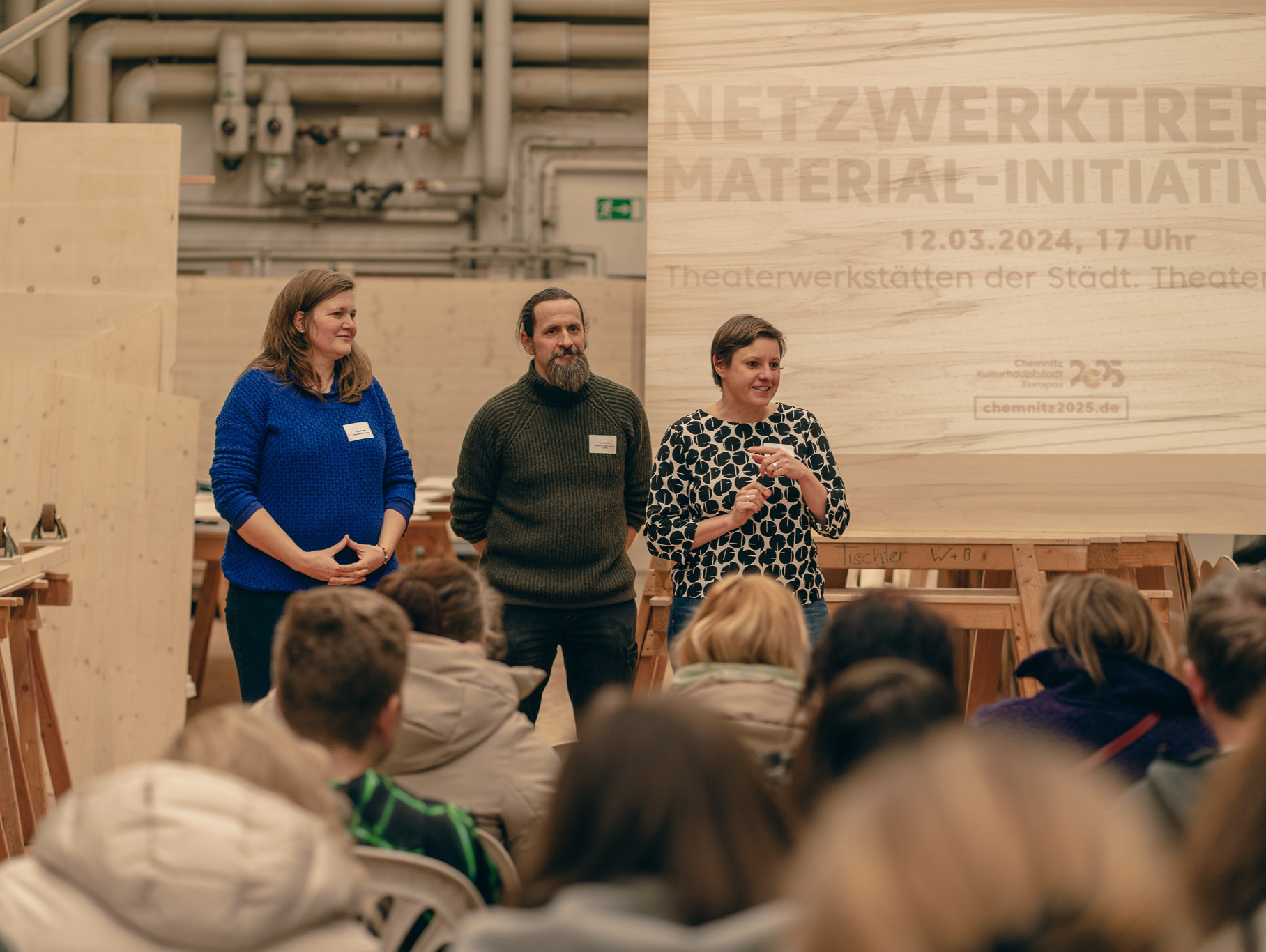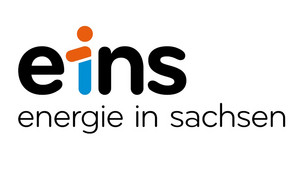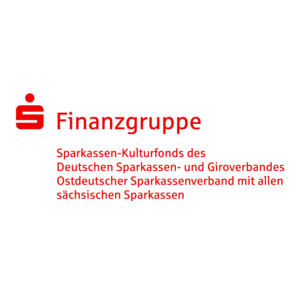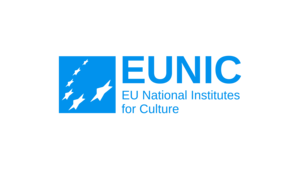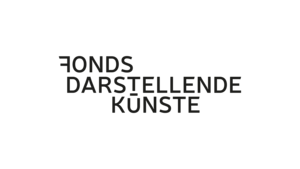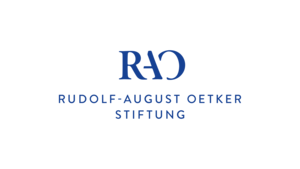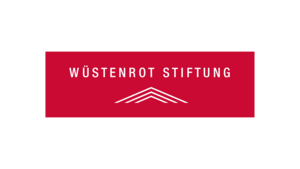The Material Initiative for Chemnitz met for the fourth time in a special setting on Tuesday, 12 March: the workshops of the municipal theatres in Chemnitz opened their doors to the 30 participants of the network meeting. They included cultural associations and institutions, social organisations, companies, representatives of intervention areas of the Capital of Culture and interested private individuals. Workshop manager Norbert Richter provided valuable insights into the work and organisation of the theatre workshops, which put on around 30 productions per season.
The participants gained an insight into how a large cultural organisation deals with materials and stage sets and what happens when plays are withdrawn from the repertoire. It also became clear what challenges there are for cultural institutions to be able to pass on materials, including: Product liability issues, copyright protection, time, financial, human and logistical resources.
One aim of the event was to find structures for the long-term consolidation of the initiative. To this end, an advisory board was appointed, among other things, which will continue to support the practical implementation of a materials initiative in Chemnitz.
What is a material initiative? Whether festivals, trade fairs, exhibitions or performances - culture needs materials. Be it for stage sets, so that exhibition objects are presented in the best light or for temporary architecture. Many materials end up in the rubbish afterwards and thus end up in the normal recycling cycle. This is where material initiatives come in. They pass on residual materials such as wood and fabric to organisations that can reuse them, especially for cultural and social purposes.
The event was organised by the main project Makers, Business & Arts of the European Capital of Culture Chemnitz 2025 in cooperation with the theatre workshops of Städtische Theater Chemnitz gGmbH, the Umweltzentrum Chemnitz and the Bürgerstiftung für Chemnitz.
